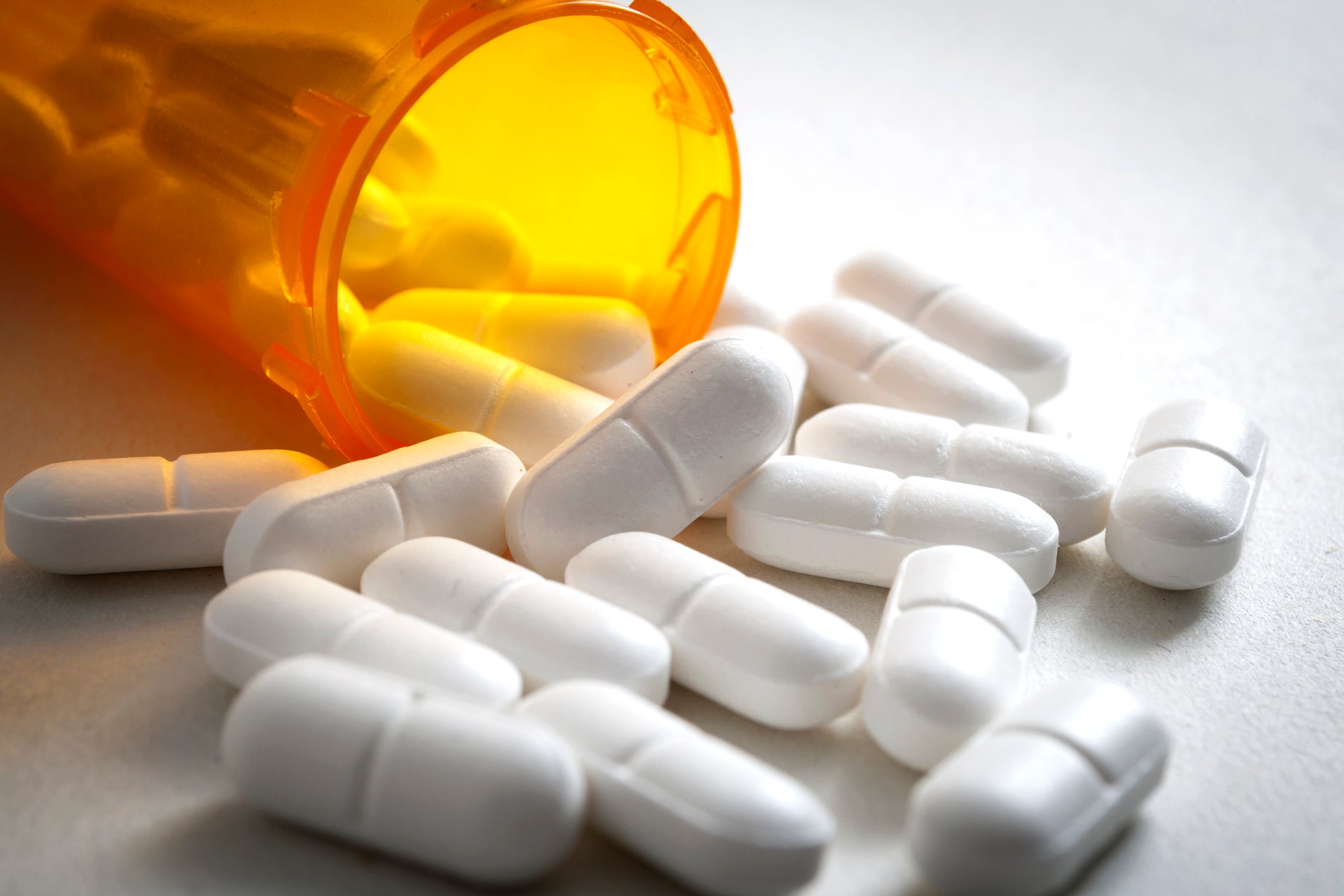Long NHS waiting lists have led to a dangerous explosion in opiate use
Opiates are very effective at reducing or eliminating physical pain, but they come with risks


A hidden and worrying aspect of the rapid growth in NHS waiting lists is the 40 per cent rise in use of drugs like tramadol, codeine and dihydrocodeine compared to pre-pandemic levels.
Researchers uncovered this startling increase in patients waiting for hip and knee operations. This type of surgery is a useful barometer as these are the most common surgical procedures carried out in the NHS, although much of this bread and butter work is subcontracted to private health providers.
The need to have surgery is the end point following a series of assessments and interventions that aim to minimise individual loss of function and mobility. One symptom unites those waiting for this type of orthopaedic surgery, and that is pain. Despite all the medical advances over the last century we still have a poor understanding and ability to treat pain, whether it’s acute or chronic.
Pain is subjective and individual, two people with the same hip problem have differing thresholds of how much pain they experience and can tolerate. Most will be started on low grade analgesics such as paracetamol or ibuprofen but then quickly move onto stronger pain killers if their pain isn’t covered. The end point for most will be opiates. This class of drugs are effective in numbing physical discomfort, although doses have to be incrementally increased to ensure they carry on providing relief.
The NHS waiting list has grown rapidly during the pandemic to reach a whopping 5.6 million people according to the most recent calculation. Given how common hip and knee problems are, it’s safe to say the majority of the 5.6 million will be made up of people waiting for this type of elective surgery. These delayed operations have introduced hundreds of thousands of people to opioids, who otherwise wouldn’t have taken them.
Opiates are very effective at reducing or eliminating physical pain, but they come with risks. If taken for anything more than a couple of weeks, the chances of developing physical and psychological dependency rise quickly. Their ability to control pain swiftly wanes and increasing the dose isn’t an option after the maximum licensed amount is reached.
People learn very quickly how opioids treat more than physical pain. Their ability to soothe mental pain is an attractive quality, particularly for this group of patients who will be suffering psychologically as a result of their loss of mobility, movement and continuous discomfort. The desire to feel better may not be matched by their doctor’s willingness to prescribe, and some patients will self-medicate more frequently and at higher doses, leading them to consume these drugs at levels way beyond the maximum recommended doses. To do this, they will either ask for more from their prescriber or independently source more of the drug, something that is all too easy to do despite the strict regulations covering this class of medication.
Many people view opiate medication very differently to the equivalent street versions. Their perception is that opioid medication is safe, quality checked and without much risk. This false sense of security contributes to the rapid transition from using these medications without problems to the drugs becoming the focus of daily thinking and something that all activity is tailored around.
It is welcome news that the chancellor has committed funds to reduce NHS waiting lists, but this must be accompanied by investment in specialist help for these accidental dependent opioid users. For them, replacing a knee or hip isn’t the end of their health problems.
Few will be able to reduce or abstain from opiate use once the operation heals their joints. They will need expert support to successfully overcome their dependency. But that specialist service has been starved of funds and is in no position to accommodate the hundreds of thousands coming its way.
Join our commenting forum
Join thought-provoking conversations, follow other Independent readers and see their replies
Comments
Bookmark popover
Removed from bookmarks